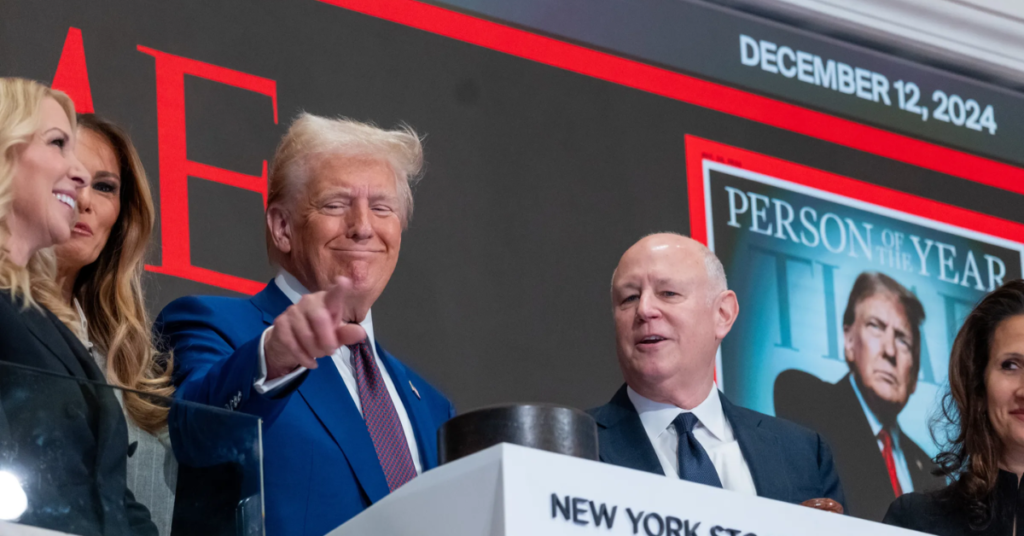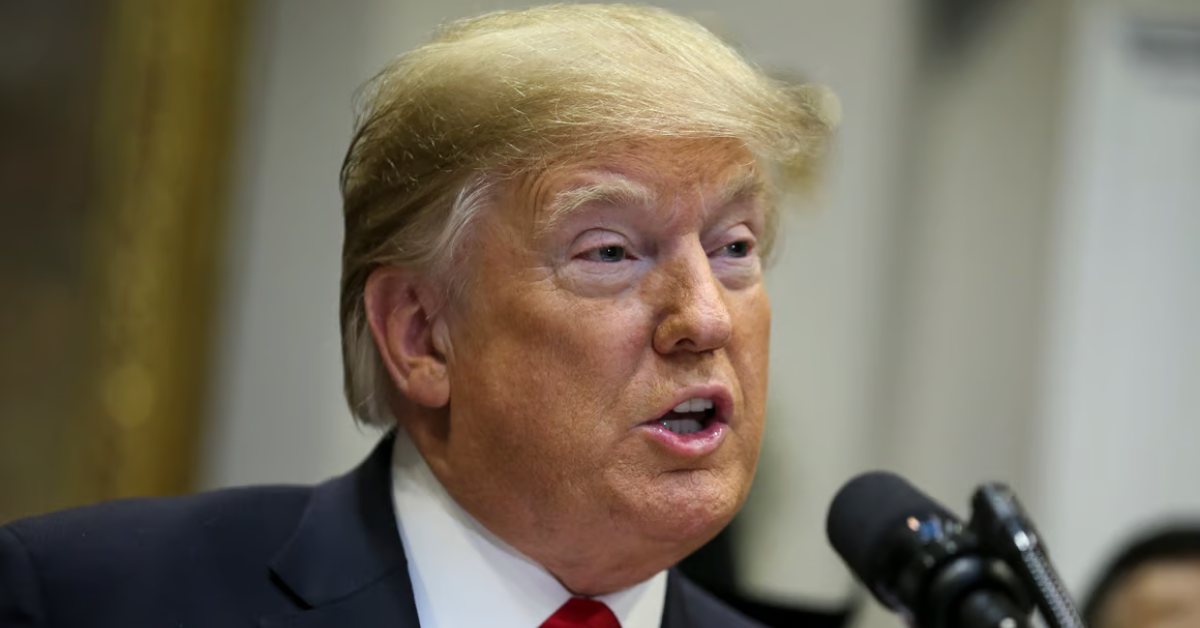The Trump administration’s tariffs are, by all reasonable accounts, a disaster in the making for the economy. So, why are these tariffs being imposed? One possible explanation is that it’s simply democracy at work.
Donald Trump campaigned for policies that included tariffs, and he was elected president, so we see his promises fulfilled. However, this is only part of the story. The real reason behind these tariffs is a deeper issue—it’s a reflection of America’s democratic decline and its transition into a hybrid system that blends democratic and authoritarian elements.
If America’s democracy were functioning properly, Trump wouldn’t have had the power to impose such sweeping tariffs on his own. According to the U.S. Constitution, Congress has the authority to raise taxes, including tariffs, not the president. Yet, Trump has been able to bypass Congress by using broad emergency powers, allowing him to implement tariffs without the necessary legal processes.
This situation reveals a breakdown in the American political system, one where the president has accumulated far more power than the Constitution intended. In this system, the presidency no longer operates as a democratic executive within checks and balances but more like an elected dictatorship.
Historically, dictatorships — elected or not — have a serious flaw: the lack of constraints on those in power. Without limits on executive power, leaders can make reckless decisions that lead to national crises. This is why democracies, despite their flaws, generally produce better long-term outcomes. America’s success in the 20th century, for example, wasn’t just due to military power but the strength of its democratic institutions, which kept leaders in check.
Now, with the tariffs in place, the consequences of democratic decay are far more immediate and visible. These tariffs represent the difference between stability and disaster. If America’s democracy had been working as it should, these tariffs would have had to pass through Congress, where they would be subject to public scrutiny and debate. Instead, Trump has taken advantage of vague emergency powers granted to the president, enabling him to sidestep the legislative process altogether.
Political scientist Adam Przeworski recently pointed out that while Trump was elected in fair elections, his policies represent a dramatic shift in the relationship between the state and society, moving away from the norms and rules that traditionally defined democratic governance. This shift is crucial to understanding why the tariffs are happening — they are a product of a broken political system that allows for autocratic decisions to be made without proper oversight.

At its core, this hybrid political system undermines the very foundation of American democracy. While elections remain free and fair, the system’s checks and balances have been eroded, making the people’s representatives in Congress increasingly powerless.
Over time, Congress has been unable to effectively perform its constitutional role, often delegating its authority to the executive branch. Whether this was due to political cowardice, partisanship, or simple inaction, it has paved the way for a situation where the president can unilaterally make decisions with potentially catastrophic consequences.
The judicial branch also shares some of the blame. While the Supreme Court has occasionally intervened in cases of presidential overreach, it has done so inconsistently and often along partisan lines. The Court’s reluctance to rein in executive power has allowed presidents to act with far more freedom than the framers of the Constitution ever intended.
This dangerous trend didn’t happen overnight. For decades, both Congress and the judiciary have failed to provide the necessary checks on executive power, creating the conditions for a hybrid system to take root. While internal checks within the executive branch, such as legal reviews and expert advisory bodies, once played a role in preventing overreach, these mechanisms have been severely weakened under Trump’s leadership. Trump has dismissed or ignored many of these checks, further concentrating power in the hands of the president.
The implications of this shift are starkly evident in the tariffs. If the U.S. were functioning as a true democracy, with proper checks on executive authority, these tariffs would have faced far more scrutiny. Instead, Trump has been able to push through his policies with little regard for the usual legal or democratic processes.
The tariff crisis illustrates the dangers of this hybrid political system. Without the democratic constraints on executive power, policy decisions become more arbitrary and less informed by evidence. This makes it far easier for leaders to make dangerous decisions, like Trump’s tariffs, which are already having harmful effects on the economy.
Democracies tend to produce better outcomes precisely because their policymaking processes are designed to be transparent, accountable, and based on reasoned debate. By contrast, authoritarian and hybrid regimes are prone to erratic decisions made by a single individual or small group, with no ability to correct course once things go wrong.
Looking at the broader picture, history shows that democracies tend to produce superior outcomes in areas such as economic growth, technological innovation, public health, and military success. A democracy’s strength lies in its ability to make decisions through legal, transparent processes that allow for public debate and oversight. By circumventing these processes, Trump’s tariffs are a stark example of how democracy’s decline has led to poor policymaking and economic instability.
Though Trump’s tariffs may not have the catastrophic effects of historical mistakes like Mao’s Great Leap Forward in China, they are part of the same pattern. The lack of constraints on the leader’s power leads to decisions driven by personal ideology rather than evidence-based policy. Similarly, Russia’s invasion of Ukraine stemmed from Vladimir Putin’s personal convictions, which went unchecked by democratic institutions.
Even if the worst effects of the tariffs are avoided, the larger lesson remains clear: the decline of America’s democratic system has allowed for a president to implement far-reaching policies without proper oversight. As this trend continues, the potential for further harm to the country’s economy and political system grows.
Disclaimer: This article has been meticulously fact-checked by our team to ensure accuracy and uphold transparency. We strive to deliver trustworthy and dependable content to our readers.








